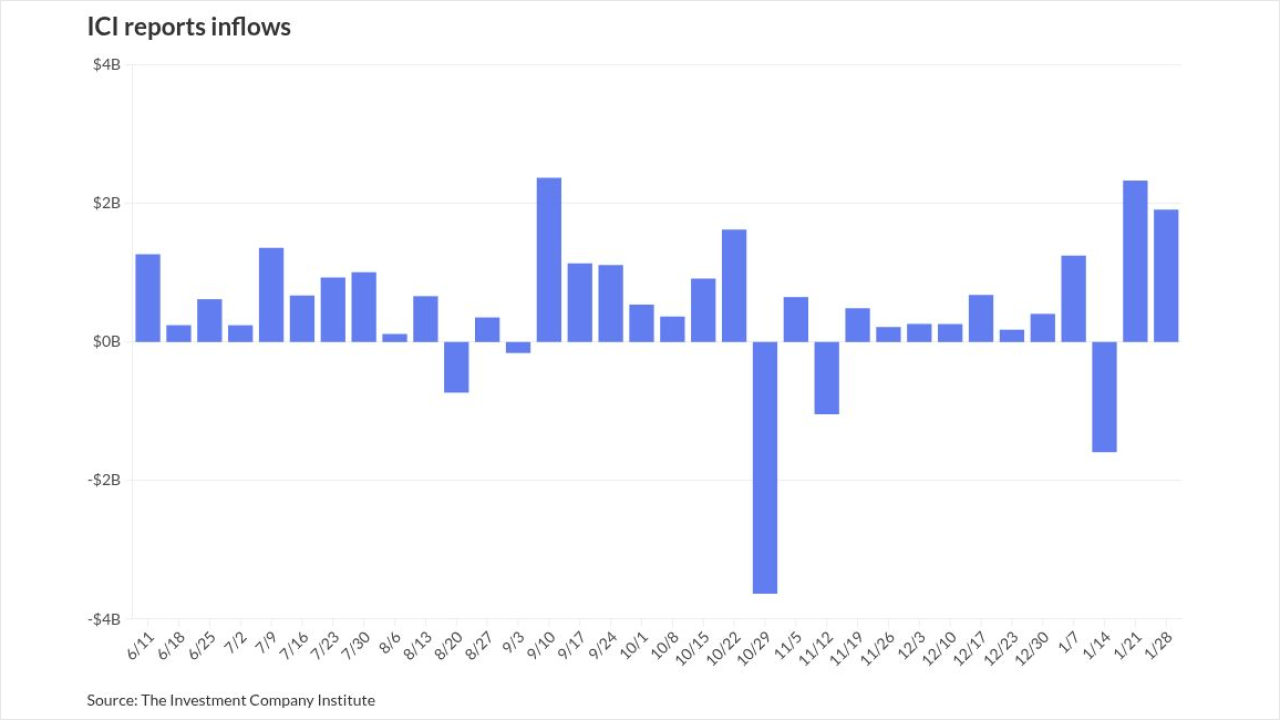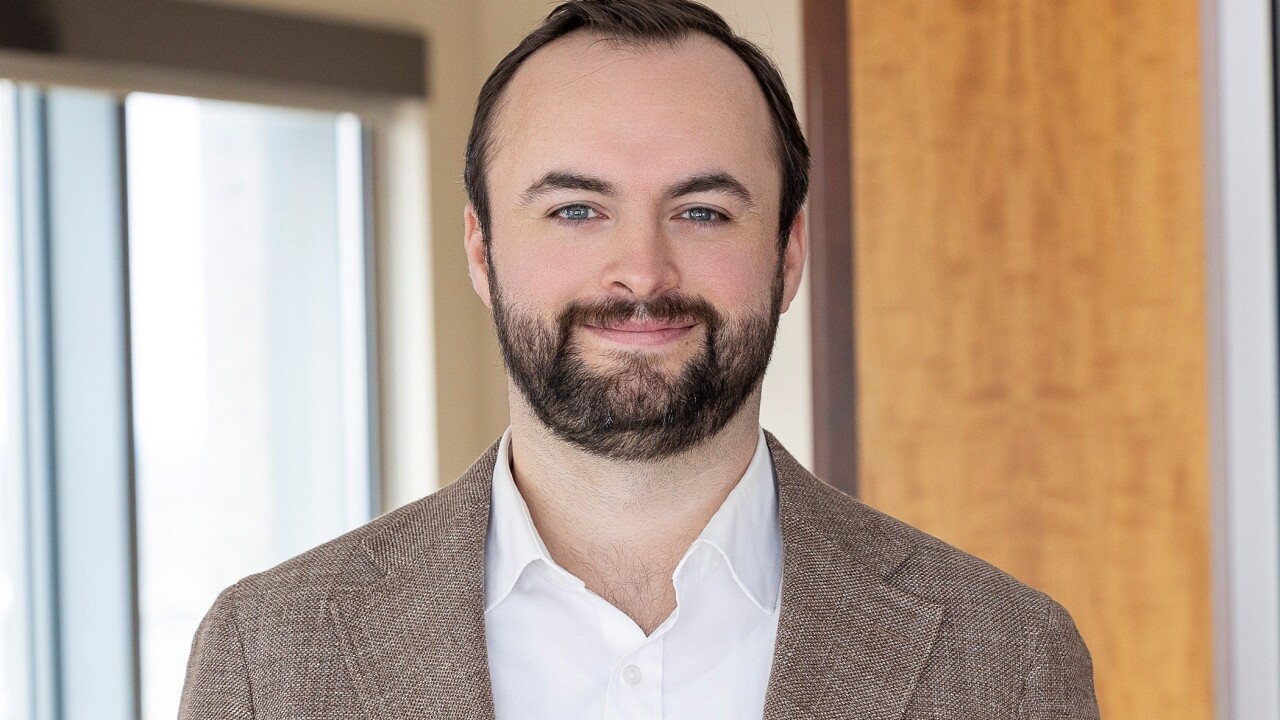
PROVIDENCE, R.I. – To understand that it's all about the economy in Rhode Island, just look at Gov. Gina Raimondo’s schedule tablet.
Slotted along with a Bond Buyer interview at the state capitol were phone calls with chief executives of a Providence software company and a new Burrillville power plant, and another with Robert Baird Jr., the new CEO of Lincoln, R.I.-based high-end pen maker A.T. Cross Co.
In short: jobs, jobs, jobs.
“Right now I’m out and about trying to reconnect with companies,” said Raimondo, a first-year governor and the state’s former general treasurer. “Our primary focus is improving the business climate. The first questions I often get are: will the taxes be predictable and have we dealt with the pensions?”
As treasurer, Raimondo championed the 2011 landmark law overhauling benefits for state employees. It made national headlines and withstood a court challenge from public-sector unions. This year the state settled with all but three of the unions and preserved about 92% of its projected savings of $4 billion over 20 years.
Elected governor last fall, Raimondo, 44, now has the entire 40-by-60 mile New England state under her watch.
“I would say it’s action-packed on a lot of fronts,” she said. “We’ve only been at it for six or seven months. And it’s only the first inning.”
Rhode Island’s challenges are many.
Its unemployment rate, while up from the bottom nationally and tied for 38th among states at 5.8% in July, is still the worst in New England. The recession, according to Gurtin Fixed Income Management in San Diego, “aggravated the soft underbelly of an already declining manufacturing industry within the state.”
The 38 Studios bond financing fiasco embarrassed the state and saddled Rhode Island with moral obligation debt related to former major league baseball pitcher Curt Schilling’s failed video-game company.
After 38 Studios folded in 2012, bond rating agencies threatened Rhode Island with downgrades if it didn’t make annual payments on the $75 million of bonds issued on behalf of the failed company.
More is yet to come on that saga: Superior Court Judge Michael Silverstein ordered the release of all documents in Rhode Island’s lawsuit looking to claw back money from defendants that include Schilling and a raft of advisors.
Even the state’s own financial advisor, First Southwest, is a defendant.
“That does not put our state’s practices in a good light,” said state Sen. James Sheehan, D-North Kingstown, who chairs the Senate oversight committee. House oversight chairwoman Karen MacBeth, D-Cumberland, said legislative hearings on the debacle may resurface.
Rhode Island also faces a large budget gap for fiscal 2017, stagnant population growth and a threat to gambling revenue from a planned casino thrust in Massachusetts. And, in a psychic gut-punch to the state and capital city Providence, the iconic downtown art-deco “Superman” building has remained vacant since Bank of America Corp. left at the end of 2012. An appraisal last year by local firm Peter M. Scotti & Associates Inc. said it had no value.
Beginning with her inauguration speech amid bitter cold and snow flurries in January, Raimondo has insisted it’s not business as usual on Smith Hill.
“It’s not the same old, same old,” she said in the interview. Raimondo emphasizes the data-driven and systematic and, in the face of parochialism, has hired from out of state when necessary. “Top talent. People who believe in the mission.”
Raimondo’s pension initiative made her a national figure.
“I was delighted that Gina was elected governor,” said Richard Ravitch, 82, the former New York lieutenant governor and Metropolitan Transportation Authority chief, best known for advising New York City as it emerged from its mid-1970s financial crisis. “She’s in it for the right reasons. She faced up to the fact that her state had to do something about the pension problem.”
Daniel DiSalvo, a City College of New York professor and senior fellow at the Manhattan Institute for Policy Research, said Raimondo’s uphill battle on pension overhaul could set an example for other states.
“I hope it’s true,” she said. “We viewed it as a necessary course of action, not just a radical or transitory move. I did it while I was treasurer and now I’m governor. Don’t be afraid of it. It’s OK.”
A working group Raimondo appointed earlier this year identified $90 million, or roughly 9%, in
The legislature this year passed a Raimondo-backed
Last month, Invenergy LLC announced plans for the Clear River Energy Center, a natural gas-fired energy facility at Burrillville, in the state’s northwest corner.
“We’ve seen positive signs short-term,” said Thomas Schuette, co-head of credit research for Gurtin Fixed Income. Gurtin warned in April that the state has serious challenges well beyond 38 Studios. The San Diego firm has maintained a sell rating on Rhode Island bonds since May 2014 and says it has no exposure to state debt.
“We’re impressed with the administration’s willingness to tackle pension and Medicaid costs, and clearly they have an eye on economic development so they can move from being a laggard in New England to kind of in line with their peers,” said Schuette. “At the same time, some of the long-term issues have to be addressed, such as budget gaps in the outyears and the full impact of Massachusetts casino expansion. And their population is still pretty stagnant.”
The governor and current Treasurer Seth Magaziner intend to lobby for an upgrade when they meet later this month with bond rating agencies. Moody’s Investors Service rates Rhode Island’s general obligation bonds AA and last fall revised its outlook to stable from negative, Fitch Ratings and Standard & Poor's rate them AA, also with stable outlooks.
Pivotal to the jobs initiative is waterfront land just southeast of downtown Providence vacated by the relocation of I-195, which connects Providence to Cape Cod, Mass. The old interstate was demolished in 2011.
In a best-case scenario, Rhode Island could replicate Cornell University’s tech campus initiative for Roosevelt Island in New York City.
“My vision is that for the project,” said Raimondo, who appointed Joseph Azrack to chair the I-195 Redevelopment District Commission, which owns the land. Azrack is long noted for his private-sector redevelopment work.
Much of what to do on that land could hinge of a Brookings Institution report, due by year’s end, on economic strategies for Rhode Island.
Although Ivy League Brown University easily enters the conversation, Rhode Island School of Design could play a significant role, according to the governor. RISD sits at the foot of the Brown-centric College Hill neighborhood and near the I-195 land.
“Companies want design talent. Software companies, manufacturing companies, all want design,” Raimondo said.
Rhode Island this summer obtained a term sheet from biotech incubator Wexford Science & Technology LLC of Baltimore for a 1-million-square-foot facility on the parcel. “We’re very excited about it,” said Raimondo.
The new ownership group of the Pawtucket Red Sox, led by outgoing Boston Red Sox president Larry Lucchino, wants to relocate the International League baseball franchise and build a stadium on the parcel, but encountered immediate headwinds when it called for $4 million a year in taxpayer money for 30 years.
Raimondo balked at the proposal. Talks among various parties are ongoing, though Brown University’s ownership of what would be left field further muddies the waters.
“I’d like to see the PawSox stay. They’ve been here forever,” said the governor. “But it’s important – very important with these ballpark deals – that we remain open to a deal that works for taxpayers.”
Fallout from the 38 Studios farce hovers over the stadium proposal and to economic development overall, as fear of being burned again resonates with voters and public officials. Gurtin called the erosion of support unfortunate for a state that needs such projects.
Raimondo said she understands why people are skittish.
“People in Rhode Island have such a sour taste from 38 Studios,” she said. “It was a terrible deal from day one, but we can’t let that paralyze us while we’re trying to rebound from a weak economy.”
First-year officeholders often devote ample time on unexpected matters. In Massachusetts, for example, a winter mass-transit debacle consumed rookie Gov. Charlie Baker.
For Raimondo, the statewide opiate addiction crisis consumed a surprising amount of her energies.
“I don’t think that I fully grasped the extent of that problem until I took office,” she said. “Too many people are dying. This is affecting every corner of the state, not just the inner cities.”
Unfinished business includes her proposal to impose interstate highway tolls on large commercial trucks to backstop a $700 million bond for transportation infrastructure.
Her RhodeWorks plan passed the Senate but stalled in the House amid objections from trucking leaders who argue that the plan unfairly targets one industry.
“We have the worst bridges in America. That’s just the facts. It takes money to fix them,” she said. “If a bridge collapses, how will that help the trucking industry? If there are a lot of detours, how will that help the trucking industry? If drivers are blowing out tires, and we know they’re expensive, how will that affect the trucking industry?”





